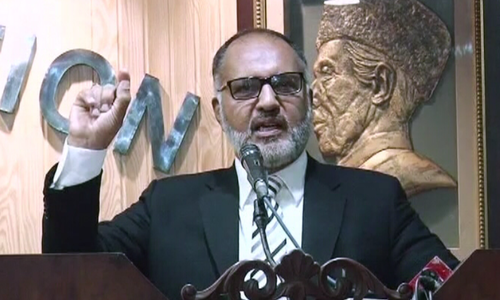THE right decision has been made, but perhaps not be for the right reasons. Applied to superior court judges, the right decision made for the wrong reasons could send the wrong signal to the judiciary and undermine confidence in the judicial institution.
Shaukat Aziz Siddiqui, a justice of the Islamabad High Court until he was stripped of his position by the Supreme Judicial Council on Thursday, was manifestly unsuited and unqualified to be a superior court judge. Mr Siddiqui had demonstrated he did not have the temperament, a necessary respect for the law or even basic decency and humanity to be a superior court judge.
Also read: The fall of a high court judge
The term ought not be used lightly, but Mr Siddiqui is the textbook definition of a religious bigot and he used his high office to strike terror into the hearts of some Pakistani citizens. It is right that he no longer holds high judicial office in Pakistan; indeed, the ousted judge has through his hateful actions likely disqualified himself from holding any public office in the country.
Yet, the manner in which Mr Siddiqui has been dismissed and the reasons given for why he is unfit to hold judicial office have raised a fresh set of questions about judicial independence, the rule of law and the role of state institutions.
Mr Siddiqui was initially referred to the SJC for conduct unrelated to the charges on which he has been dismissed. Before the original allegations against Mr Siddiqui could be adjudicated on by the SJC, he gave a speech in which he made sensational allegations against a military-run intelligence agency.
While it is arguable that he made the speech to try and save his judicial career and his purpose was to stir controversy rather than shed light on alleged unsavoury behaviour by elements within the state, the allegations should have been transparently investigated. An investigation could have helped dispel the doubt that Mr Siddiqui may have cynically tried to create in the first place.
Now, there is the reality of a high court judge dismissed from service and the public not necessarily knowing if there is any merit to the claims for which he has been dismissed. The SJC acts exceedingly sparingly; the negative opinion against Mr Siddiqui is reportedly the first since the regime of Gen Ayub Khan.
Judicial accountability is welcome and necessary, but it must be transparent and fair.
Published in Dawn, October 13th, 2018















































